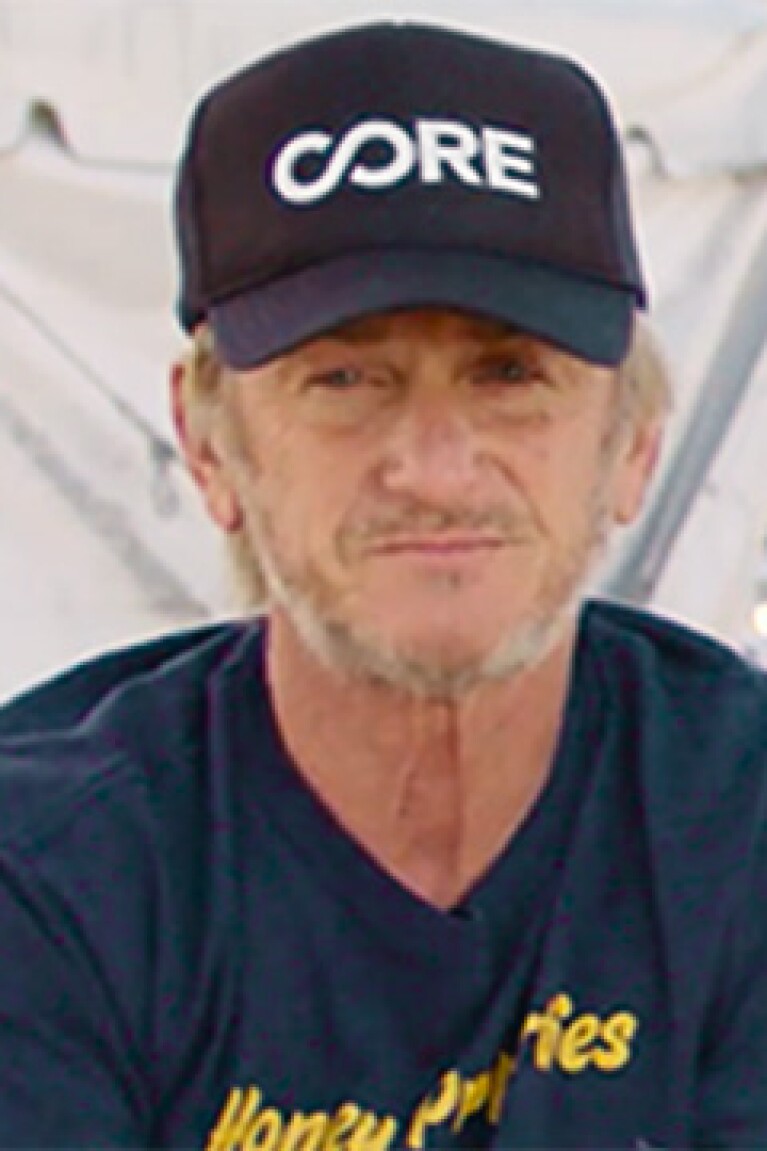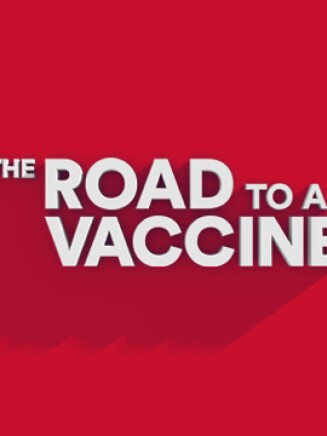Nine months after the pandemic first struck the U.S., what still needs to be accomplished to overcome it in the U.S., and what can our country learn from others that have dealt with the devastating novel coronavirus more effectively?
Lisa Ling explored these questions and more with guests Sean Penn and Ann Lee, co-founders of the nonprofit CORE, on the last Season 2 episode of The Road to a Vaccine.
We sat down with renowned actor, writer, producer and director Penn and Lee, who has spent her career in humanitarian response for such organizations as the United Nations, in advance of the show to find out what they see as the biggest obstacles to managing the pandemic in the U.S.—and how CORE is helping in the fight against the virus.
Q:
Your organization, CORE, was originally founded 10 years ago, following the devastating earthquake in Haiti. How did you make the decision to pivot from disaster relief to pandemic relief this year?
A:
Sean Penn (shown at right): Bringing CORE’s experience to pandemic relief was a natural progression of our work with natural disaster relief, which has always focused on connecting directly with vulnerable communities and providing them with the aid and tools necessary for a successful and positive path forward.
We look at the root of crisis to identify what factors make certain populations more vulnerable to it, and then we work to provide solutions, both in the short term to help people get out of life-threatening situations, and in the long term to help communities better prepare for the next crisis.
Some examples of long-term solutions include establishing schools, youth development programs and agricultural programs to combat the effects of climate change.
We have never limited ourselves to just being an emergency relief organization, and that mindset allows us to spring into action for an unprecedented scenario, such as a pandemic. When we’ve entered scenarios that are uncharted territory, we work with partners and local governments to bring the right people to the table, and we enact solutions with our collective experience and resources.
Ann Lee: COVID-19 brought out the basic foundation of CORE: having a high risk tolerance and a “we can do something and we will do something” attitude to figure out how to make a positive impact in any crisis.
Q:
One of CORE’s major initiatives has been to help facilitate COVID-19 testing. Why was this your first focus?
A:
Penn: Our focus on testing was initially an effort to help relieve Los Angeles Fire Department (LAFD) first responders. CORE knows how to organize, and we saw a need for our services and volunteers to help operate drive-through testing.
Having listened to medical experts, we understood quickly that a combination of testing, contact tracing and isolation were key to stopping the spread of the virus, so that became and remains a primary focus of our efforts.
Thanks to Los Angeles Mayor Eric Garcetti, and with initial training by LAFD, we were able to free up first responders to focus their efforts on the more highly skilled work they do in communities.
At the beginning of the pandemic, the main priority was identifying who had been infected so that we could help stop the spread of disease, and thus we rapidly expanded our free testing operations to get as many people tested as possible. Having listened to medical experts, we understood quickly that a combination of testing, contact tracing and isolation were key to stopping the spread of the virus, so that became and remains a primary focus of our efforts.
Our continued focus is helping low-income groups and communities of color, who continue to be disproportionately impacted by COVID-19. This can be largely attributed to the significant disparity in healthcare for these populations—another underlying factor that makes them vulnerable to crisis.
We knew we had to help these communities, often by going directly to where they lived via our mobile testing units.
Q:
Can you update us on how your testing efforts are going?
A:
Lee (shown at right): More than 2.7 million free COVID-19 tests have been administered at CORE testing sites since March 30, and we are currently operating and supporting 46 testing sites in California, Georgia, Illinois, Navajo Nation, New Orleans, North Carolina and Washington, D.C.
We’ve seen firsthand that testing is not enough.
This response requires a multi-pronged, integrated approach, inclusive of streamlined testing with a 48-hour turnaround on results; comprehensive and innovative contact tracing programs initiated within 72 hours of receiving a positive result; and supported services that provide shelter, food, hygiene kits and other essential services to those who need them most.
We have seen how this model can work in Navajo Nation, where we’ve been working with President Jonathan Nez and the Navajo government to implement an integrated relief program. We’ve been distributing hygiene kits and building semi-permanent dwellings, in addition to the work with our testing and tracing partners at Johns Hopkins Center for American Indian Health.
In Fulton County, Georgia, we’ve seen how this model can be scaled and replicated in urban settings. We have collaborated with Fulton County to operate the Case Investigation and Resource Coordination Program, which takes a cutting-edge approach to contact tracing by providing those who have tested positive with the resources they need for safe isolation so they don’t spread the virus in their households and communities. We’re working to continue to scale this integrated approach with our partners across the nation.
It takes a village and it takes an integrated approach across the board to beat this virus. As a nation, we have been challenged in this moment to learn as we go, so as the virus changes course, we must also evolve our defense, and that takes unity. The biggest challenge has been the lack of such coordinated efforts by the federal government.
But we have been very fortunate to work with many like-minded public health departments, local jurisdictions and officials, from Mayor Garcetti in Los Angeles to Chairman Robb Pitts of the Fulton County Board of Commissioners. Many of these local government entities took charge and have provided the guidance and leadership that was sorely needed. These partnerships make the work possible; it’s critical to have support from community leaders so that our combined effort can have the maximum impact.
Q:
Where do you get the funding to do the important work you’re doing?
A:
Lee: Only a small fraction of our programs have been funded by the federal government, and only as recently as October. Incredible partners—such as Jack Dorsey’s #startsmall $30 million donation and the Rockefeller Foundation’s initial funding—allowed us to start immediately at the end of March, until government funding allowed us to continue until the end of this year.
Donations make this work possible, and without additional funding, testing operations will be seriously impacted. We continue to ask private donors to meet the moment with us and help stop the spread of the pandemic. From one dollar and up, every dollar really makes a difference.
Q:
From everything you’ve seen, what’s one key message you’d want everyone to know about the reality of this disease and what we all need to be doing to help solve the problem?
A:
Penn: This is a public health crisis, and we must listen to experts and apply an integrated approach—and it all starts on an individual level.
To beat this pandemic and restore our lives, we must all step up.
Each one of us has a role in preventing the spread of the virus. Doing so not only protects yourself and your loved ones, but also crucially takes into account the most at-risk individuals and communities who are disproportionately impacted by COVID-19.
Wear a mask. Socially distance. Wash your hands.
Lee: I hope the world learns that we are stronger together and that truth and experience are vital to responding to a global crisis. To beat this pandemic and restore our lives, we must all step up.
Over 255,000 American lives have been taken by COVID-19, and its impact will have ripple effects for decades. It’s our individual responsibility to benefit the collective good in the biggest crisis of our lifetime.



